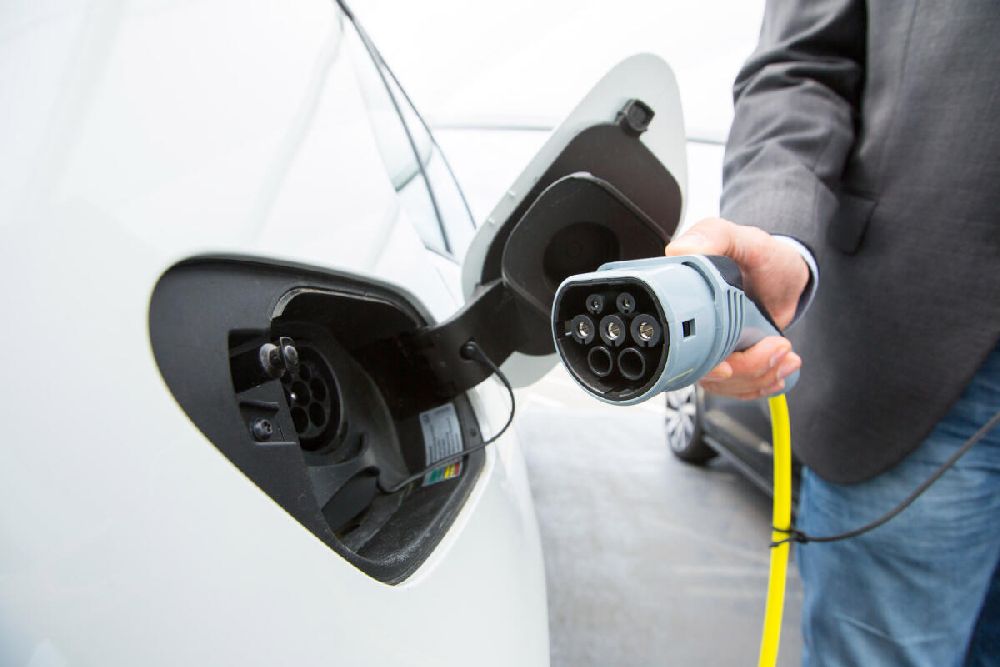
.
Extinguishing fires in electric vehicles (EVs) may be more difficult than fighting a fire in conventional combustion-engine cars, civil defence authorities have warned.
In a workshop organized by the Abu Dhabi Civil Defence Authority in cooperation with the EVS Company, officials taught residents about the dangers of electric cars and how to deal with them in the event of an accident or fire, using the best modern and innovative methods.
Colonel Ibrahim Ali Jalal Al Balushi, deputy director of the Fire and Rescue Sector at the Abu Dhabi Civil Defence Authority explained the dangerous points that the rescuer must avoid when they are forced to cut parts of the vehicle to save the injured persons.
“Rescuers must follow a precise method to open the doors of the vehicle when the electricity is cut off and disconnect the power supply energy to the battery in order to avoid a fire or explosion if a vehicle involved in an accident,” he said.
Al Balushi pointed out that extinguishing fires in electric cars may be more difficult than fighting a fire in conventional combustion-engine cars, but it is not more complicated or dangerous than a fire that erupts in gas-powered cars.
“If a fire breaks out after an accident, there is no difference in risks between electric vehicles and cars with combustion engines. It is important to follow the preventive safety requirements to avoid the occurrence of such fires,” said the officer.
“Motorists should ensure that they have fire-extinguishers in their vehicles all the time.”
The UAE Ministry of Interior had earlier identified several measures to help reduce the occurrence of fire incidents while charging electric vehicles at home.
These measures include the need for regular checking of the car’s electric charging system by a specialised technician, avoid using electric sockets that have a single electric circuit integrated with other ones, and avoid touching the charging link of the EV with fingers.
Motorists were also told to avoid washing the vehicle while charging, not to leave children unattended when they are near the EV during the charging process and not to allow them to tamper/play with the charging wire.
ALSO READ:
- Driverless-car goal by 2030 gains momentum amid Smart Dubai initiatives
- UAE automotive market shifts gear, posts 9.3% growth in H1
In August 2021, the Abu Dhabi Department of Energy (DoE), in cooperation with the concerned parties approved a new governance framework for charging EVs in the emirate. The aim is to enhance the integration of the electricity and transport networks and encourage the participation of the private sector and consumers to support the growth of EV usage in Abu Dhabi.
The approved framework mandates the installation of sub-meters on EV charging units in private residences and commercial buildings, define an unified tariff for all registered units with consumption monitored by Abu Dhabi Distribution Company (ADDC) and Al Ain Distribution Company (AADC), and enhances the public charging system, which currently has 200 charging units available to the public across the emirate.










